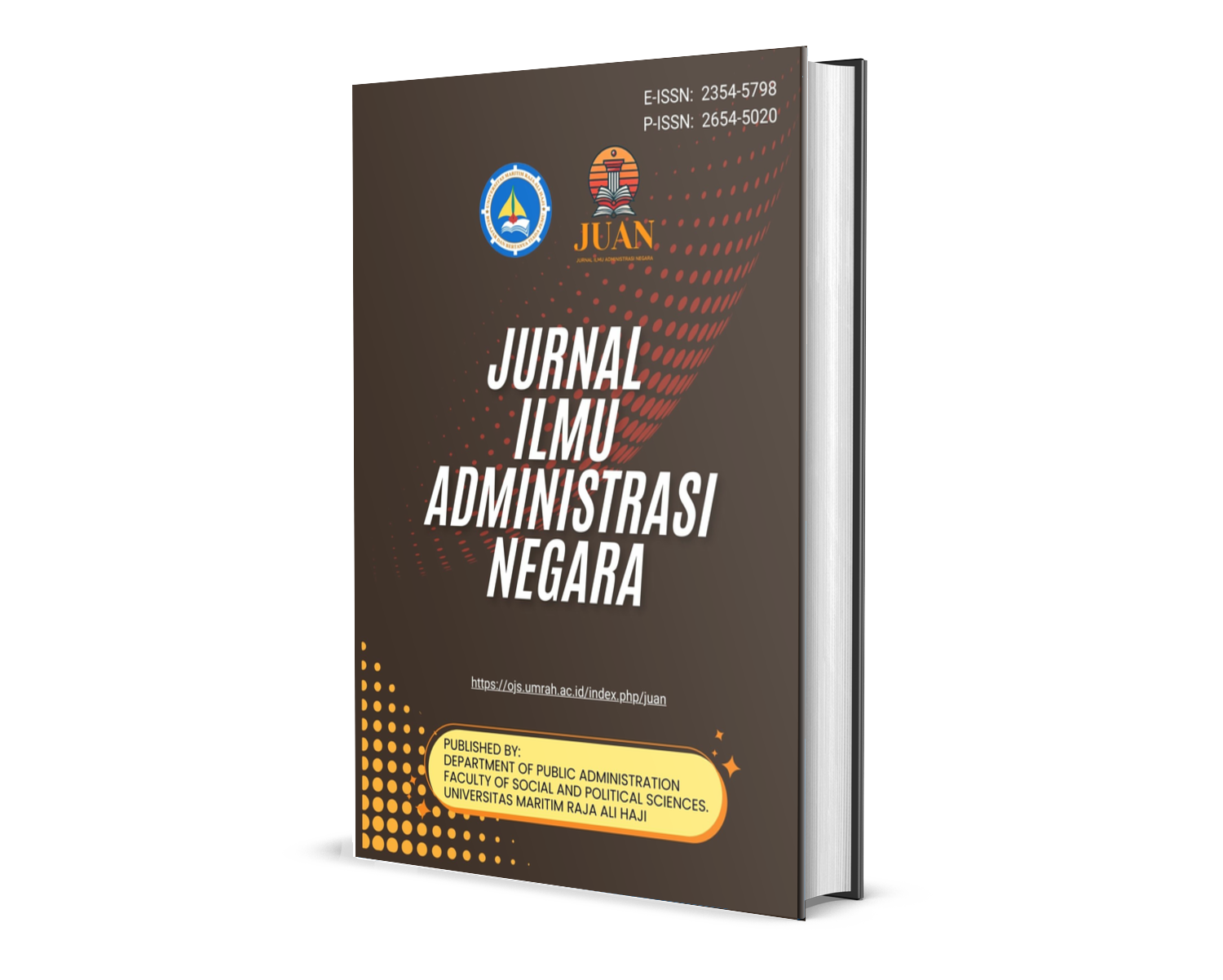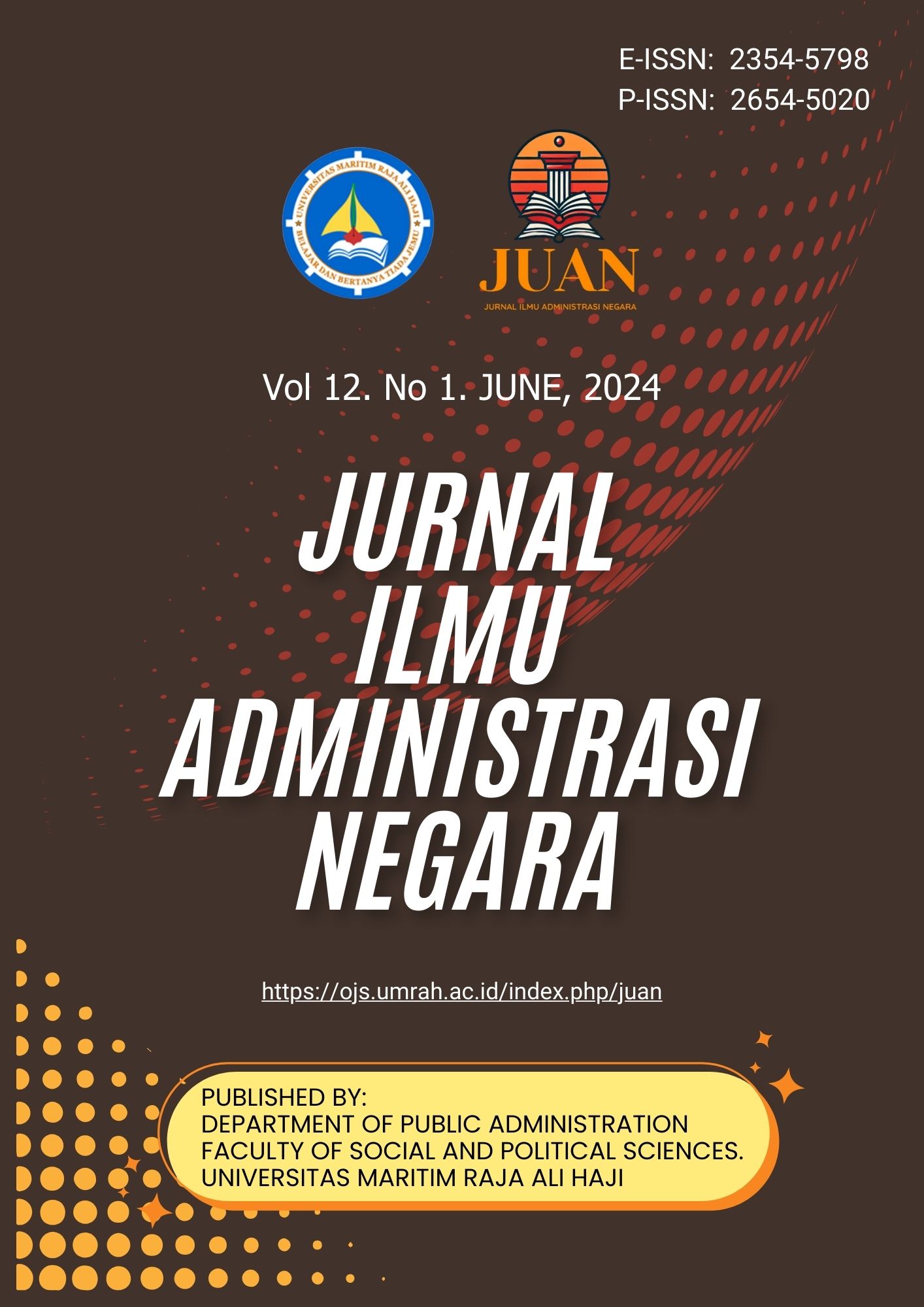COVER


The first article, Slum Management Analysis Using Bibliometric Analysis by Muhammad Andhika Sukma Putra, Mohammad Rizky Nur Santosa, Achmad Nurmandi, Helen Dian Fridayani, and Muhammad Eko Atmojo, presents a bibliometric analysis of slum management studies. The paper identifies trends, gaps, and best practices in slum management research, offering insights for policymakers and urban planners to address housing and infrastructure challenges in urban areas. The second article, Implementation of the Sustainable Development Goals Program in Oabikase Village, West Insana District, North Central Timor Regency by Liberius Naisoko, evaluates the implementation of the Sustainable Development Goals (SDGs) program in Oabikase Village. The study highlights local efforts to promote sustainable development, improve community welfare, and foster environmental conservation through participatory and inclusive approaches. The third article, Public Information Disclosure Communication Strategy at the Regional Liaison Agency of Banten Province by Muhibudin Wijaya Laksana, Siti Alia, and Rina Nuraeni, examines the communication strategies employed by the Regional Liaison Agency of Banten Province to enhance public information disclosure. The paper highlights the integration of technology, transparency, and participatory approaches to improve public access to information and strengthen the relationship between government institutions and citizens. The fourth article, Implementation of Good Governance in Health Services at the UPTD Mental Hospital of the Bangka Belitung Islands Province by Zakiyudin Fikri, Asmadi Asmadi, and Dara Puspita Sari, explores the application of good governance principles in mental health services. The study focuses on institutional transparency, accountability, and service quality improvement to ensure equitable and patient-centered care in the Bangka Belitung Islands Province. The fifth article, Implementation of E-Government Jogja Smart Service in Building Jogja Smart City by Nilna Muna, Nanda Salsabila, and Vikko Hilmi Pradana, investigates the role of Jogja Smart Service in advancing Yogyakarta's smart city development. The paper discusses how e-government initiatives streamline public services, enhance citizen engagement, and foster sustainable urban growth through the integration of digital technologies. The final article, Implementation of Alumni Cooperation Program Development with Polytechnic College of Administrative Sciences, State Administrative Institution Jakarta by Faishal Ahmad Kamil, Keisha Dinyah Solihati, and Nida Handayani, focuses on the development of alumni cooperation programs at the Polytechnic College of Administrative Sciences. The study emphasizes collaboration between alumni and the institution to enhance education quality, professional networks, and career opportunities.

Jurnal Ilmu Administrasi Negara (JUAN) This work is licensed under a
Creative Commons Attribution-ShareAlike 4.0 International License
Published by:
Department of Public Administration, Universitas Maritim Raja Ali Haji. Kota Tanjungpinang, Kepulauan Riau, Indonesia
Email: juan@umrah.ac.id Website: fisip.umrah.ac.id
